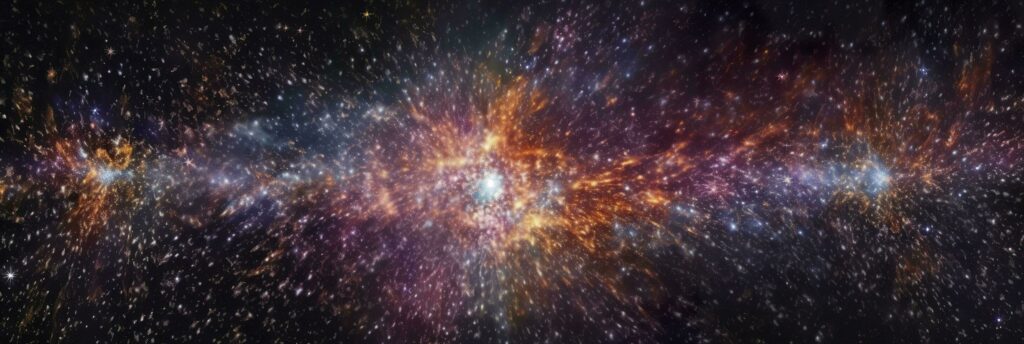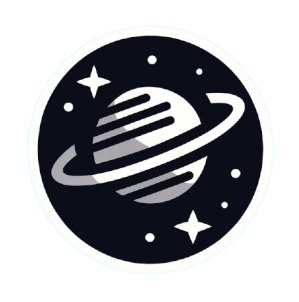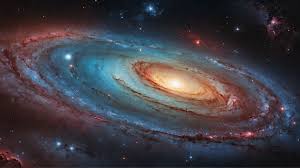While you’re sitting comfortably, sipping your coffee and observing your very non-expanding surroundings, the universe is expanding—just not in a way you can measure by looking at your backyard. You wouldn’t notice it unless you went way, way beyond our little corner of the cosmos. Locally, things are pretty static. But out there in the great cosmic beyond? That’s where things get interesting.
The universe is expanding. Not just expanding, but doing so at an accelerating rate. And no, it’s not just your waistline after the holidays – we’re talking about the vast cosmos, with galaxies drifting away from each other like socially awkward party guests. Edwin Hubble himself first discovered this cosmic drift using something called the “redshift.” Simply put, he found that the farther galaxies are from us, the faster they’re speeding away, like they’ve spotted something truly horrifying at the center of the universe. (Don’t worry, it’s not you!)
Even in areas where galaxies seem tightly bound together – like in our local group or the much larger Virgo supercluster – there’s still a bit of cosmic distancing going on. But in the grander scheme, the farther galaxies are from the Milky Way, the faster they seem to be moving. This observation led to the creation of the so-called “Hubble Constant,” a value that tries to quantify how quickly galaxies are fleeing the scene.
The Doppler Effect Now in Space
Hubble’s groundbreaking work led us to the concept of redshift, where light waves from distant galaxies stretch as they move away from us. It’s the cosmic equivalent of the Doppler effect you hear when an ambulance zooms by. As it approaches, the siren sounds higher-pitched, and as it drives away, the pitch drops. The same thing happens with light: galaxies moving away from us shift their light toward the red end of the spectrum, meaning the wavelengths get stretched out.
The farther the galaxy, the more redshifted its light, and by measuring this, we can estimate how fast it’s retreating into the cosmic wilderness. So, the next time you’re bummed out that your crush isn’t texting back, just remember: somewhere, galaxies are ignoring each other too.
The Hubble Constant
The Hubble Constant gives us a way to calculate just how quickly galaxies are racing away. Previously, scientists pegged this cosmic getaway at around 67.15 kilometers per second per megaparsec. In case you’re wondering what a megaparsec is (and who wouldn’t be), it’s just a fancy way of saying 3.26 million light-years. So, according to the old constant, a galaxy one megaparsec away from us would be moving at about 67 kilometers per second. If a galaxy is two megaparsecs away, it’s moving twice as fast, and so on.
It’s a neat trick, but the story doesn’t end there. With new and more refined measurements, scientists recently discovered something intriguing while observing Cepheid stars. These stars have regular brightness fluctuations that make them excellent cosmic measuring sticks. Using these stars, researchers from the Space Science Institute, led by Adam Riess, realized that the universe is expanding even faster than we thought. Surprise!
The Universe is Moving Faster
New calculations suggest that the universe isn’t expanding at a leisurely 67.15 kilometers per second per megaparsec, but at a brisk 74.5 kilometers per second per megaparsec. That might not seem like a huge difference unless you’re planning a road trip to the next galaxy, but it means the universe is expanding about 9% faster than previously believed.
This new constant, derived from observations of the Magellanic Cloud (one of our Milky Way’s companions), implies that galaxies are zooming away at an even quicker pace. Think of it as the universe hitting the gas pedal, though no one is quite sure why. Maybe it’s running late?
Shrinking Uncertainty, Expanding Confidence
What’s truly interesting is how much more accurate these new measurements are. The margin of error on the old Hubble Constant was already slim, but these new numbers tighten it even further. Previously, there was a 1-in-3000 chance the old calculations were wrong. Now, that uncertainty has been slashed to just 1-in-100,000. So, unless the universe is playing some sort of cosmic prank on us, we’re pretty confident that it’s expanding faster than before.
As you can imagine, theorists are furiously scratching their heads over what this means for their models of the universe. Some are pointing fingers at the mysterious dark matter and dark energy, forces that may be contributing to this unexpected acceleration. Dark energy, in particular, has been the prime suspect, but it’s still as elusive as ever – kind of like trying to find the “good” Wi-Fi at a coffee shop.
The Great Cosmic Runaway
What does this mean for our understanding of the universe? Well, for starters, it suggests that galaxies far, far away are running away even faster than we thought. The farther they are, the faster they’re zipping off into the unknown. But don’t worry, this doesn’t mean your neighbor will start drifting away from you at light speed anytime soon. The Hubble Constant only applies at enormous distances, not in your backyard (or even across town).
The big question now is: why is this happening? Theories abound, ranging from the interplay between dark matter and regular matter to the equally mysterious dark energy. These invisible forces seem to have a significant influence on the universe’s behavior, but like a magician’s tricks, we still don’t fully understand how they work.

Where Exactly Is the Universe Expanding Into?
So, where exactly is the universe expanding? Is it drifting apart into… what, exactly? Is it pushing into some other universe or maybe into the void? After all, when something expands, it has to spread into something else, right? I mean, it can’t just expand into nothing… can it? Surely, we’re not supposed to just believe that the universe is expanding into thin air (literally)!
No reasonable person would claim that the universe is expanding without proof, right? I mean, how would anyone know? It’s not like we can just measure the entire universe from our living rooms. Looking around here, nothing seems to be expanding. My furniture’s still where it was yesterday. My coffee cup is sitting still. The stars? Same spots as always—give or take a few seasonal shifts.
Expanding Universe, Shrinking Past
Here’s the fun part: if the universe is expanding today, it must have been smaller yesterday. And the day before that, it was even smaller. Keep rewinding, and what do you get? A universe that was once so small it could fit in your pocket! Well, not quite, but close. This is where the concept of the Big Bang comes in—the idea that the universe started from a hot, dense point and has been expanding ever since.
But this isn’t just a wild theory. In 1948, three nuclear physicists (guys who knew their way around an atom bomb) figured that if the universe really was expanding, we should be able to trace it back to a time when the universe was as small as an atom. That’s how the Big Bang theory was born, and it’s been backed up by solid science ever since. Every prediction these physicists made has come true, which is why we’re pretty confident that the universe really did begin with a bang.
Expanding Into What, Exactly?
Now here’s the kicker: the universe isn’t expanding into anything. It’s not like there’s some kind of cosmic “outside” that the universe is pushing into. The universe is everything. It’s not expanding into a void; it’s just that the distances between galaxies are getting larger. Imagine baking a raisin-filled cake (because who doesn’t love cake metaphors?). As the cake rises, the raisins (galaxies) move farther apart, but there’s no space outside the cake—it’s just the cake expanding.
This mind-boggling idea that the universe isn’t expanding into anything, but rather expanding within itself, ties together the smallest scales of physics (think: atoms and particles) with the largest scales (the entire universe).
What’s Next for the Expanding Universe?
So, next time you look up at the stars and think, “Hey, nothing’s moving!” remember that the universe is constantly expanding. Sure, it’s not something you can notice while hanging out on your patio, but on a cosmic scale, it’s happening all around us. The universe is stretching, galaxies are drifting apart, and it’s all part of the grand, ongoing story of cosmic expansion. Whether it’s expanding into something or just getting bigger within itself, one thing’s for sure: the universe is never sitting still.
While these new revelations are exciting, they also present a puzzle. How will our current models of the universe adapt to this faster rate of expansion? And what new theories will emerge as scientists try to explain the cause behind this acceleration?
One thing is for sure: the universe is in a hurry to get somewhere, even if we don’t know exactly where. So next time you’re feeling rushed, just remember—you’re in good company. The entire cosmos is racing along with you.


